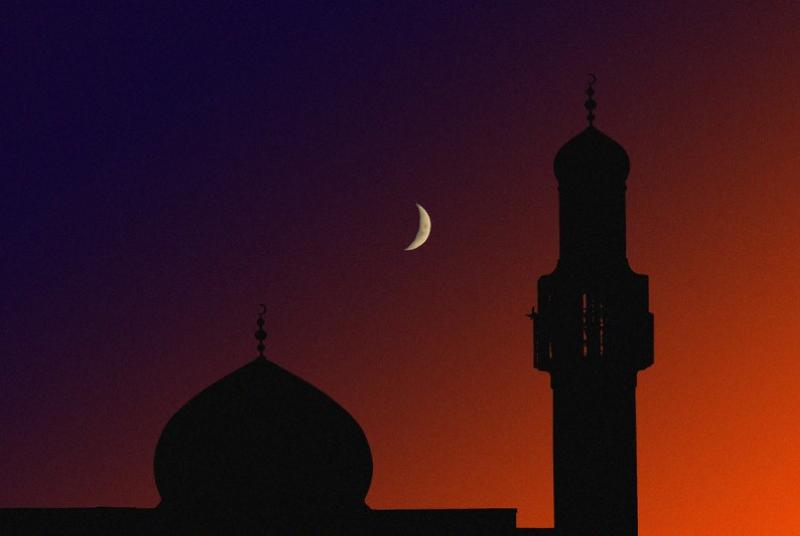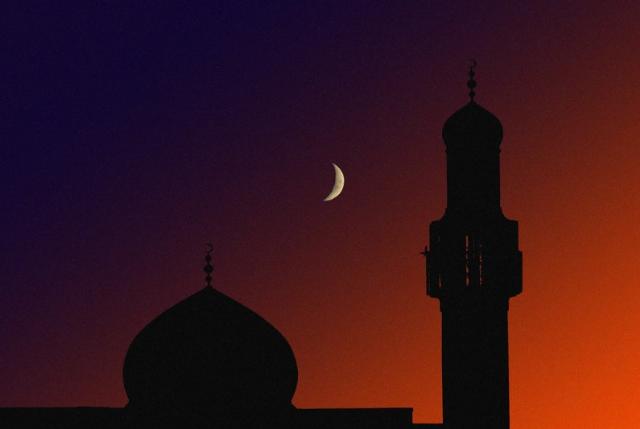


Most in the West don’t know much about Islam, and what they know is often incorrect. But what about the 72 virgins?
Are they real? Do Muslim men believe that after death, they will be rewarded with 72 virgins? The question needs to be addressed, because it has been suggested that there was an incorrect translation, and the men are getting raisins, not virgins. And, perhaps out of envy or jealousy, some claim the virgins are old, ugly, and in constant PMS. So what’s the truth about the 72 virgins?
Muslims believe that after they die, they will be admitted into paradise, where the weather is never too hot or too cold. In paradise, there is an abundant supply of all kinds of food, as well as rivers of water, milk, wine, and honey. There is a marketplace where men can choose and enter the image of a handsome man, after which they will remain 30 to 33 years old. In paradise, there is no waste, such as urine; however, some believe that waste is secreted as sweat, which has a pleasant, musky odor. In paradise, men recline on jeweled couches, facing one another, while each is served by thousands of immortal boys.
The virgins (Hur, Houris, and Houri) are special creations for the men in paradise. They have white skin and beautiful eyes and are hairless except for their eyebrows and heads. They have fully rounded, pear-shaped breasts that don’t sag or hang. Every man will have between 72 and 100 virgins as wives. Men have sex 100 times a day; they are never exhausted, and sex doesn’t become boring or routine. After sex, the non-virgins become virgins again. The virgins desire only their husbands and are never annoying or ungrateful. And when the husband returns from being away, the virgins tell him that he is more handsome and graceful than when he left.
Although the verses about paradise and virgins are believed to have been revealed early in Muhammad’s prophecy, they had little impact on attracting followers. After 12 years of preaching, when he left Mecca for Medina in 622, Muhammad had between 80 and 200 followers. In Medina, conditions were initially so bleak that the survival of Islam was uncertain. Then, just in time, Muhammad revealed new verses from the Quran that provided a way for his followers to attain paradise while they were still alive. These verses gave Muslims permission to loot, murder, rape, rob, and enslave non-Muslims. Thus, rather than waiting to die, Muslim men could immediately reward themselves with loot and women. And, as a bonus for looting and raping, the Islamic god gave them a fast pass into paradise after death. Promising Muslim men loot and women proved to be an effective recruiting tactic, as eight years later, Muhammad left Medina with an army of 10,000 bandits and rapists to conquer Mecca.
The path to paradise differed during Muhammad’s life. Initially, when he needed large numbers of morally compromised, violent men to loot, rape, and force non-Muslims to submit to Islam, jihad was the only path. In fact, jihad was an obligation, and those who died without participating met the Islamic god with a religious imperfection or as a hypocrite.
Then, with a never-ending supply of men eager for loot and women, Muhammad began to provide his followers with alternative paths to paradise. For example, when a blind follower asked if he was going to hell because he couldn’t go on jihad, Muhammad quickly revealed a revelation about the blind and lame being exempt from jihad. Others who couldn’t go on jihad wondered what would happen to them, and again, there were exceptions, such as providing for a jihadist’s family when he was away. Then women wanted to know if they had to go on jihad; Muhammad said women’s jihad was making a pilgrimage to Mecca. Muhammad’s followers continued to ask if certain conditions allowed them to enter paradise, and the list expanded to those who died from the plague, diarrhea, cholera, or pleurisy. The list then expanded to those who drowned, and to those who were burned or crushed to death. Soon, the list also contained those who died during childbirth, or who died in bed, “by any kind of death.” When a woman asked if having three children die gained her entry into paradise, Muhammad said it would. Another quickly asked if two dead children were enough, and again, he said they were. Then he was asked if one dead child was sufficient. Again, the answer was yes. The list even included those who became seasick and vomited. Finally, Muhammad said all Muslims go to paradise, unless they opt out.
There were concerns about whether women were allowed into paradise because of two consecutive verses in the Quran. The first says the men in paradise are married to virgins with “wide, lovely eyes.” The second says that in paradise, men are joined by their “believing offspring,” with no mention of their believing wives. The absence of women in paradise is partly explained because they are overrepresented in hell, since they are less intelligent than men and they swear a lot. They are also annoying and ungrateful to their husbands, and a wife is forbidden from entering paradise if her husband is displeased with her. Even if earthly wives were admitted to paradise, it doesn’t appear they were united with their husbands. The virgins told them that their husbands were only passing guests with them, and that after death, their husband would join his non-annoying, grateful virgin wives in paradise.
One additional issue related to entering paradise is the idea of predestination. Muhammad said that from birth to death, Muslims’ lives are predestined, including who goes to hell and who goes to paradise. This caused some problems when Muslims, including one of Muhammad’s daughters and her husband, stopped praying and attending the mosque. When Muhammad confronted them, they claimed it wasn’t their fault, since their behavior was predestined and beyond their control. They also said it didn’t matter what they did or didn’t do because their fate was already decided. Muhammad quickly came up with the idea of “Best Deeds,” which included actions that demonstrate belief in the Islamic god, such as praying, attending the mosque, and going on jihad. Muhammad told his followers that those going to paradise found the Best Deeds easy to do, and that performing the deeds was a sign they were predestined for paradise.
So the answer to the question is that Muslims believe that the men in paradise will have 72 wives. The wives are virgins, beautiful, promiscuous, and grateful to and respectful toward their husbands.
Most AT readers probably don’t find the Muslim concept of the afterlife very appealing and dismiss it as the fantasy of young, immature, chubby, socially awkward, pimple-prone males. The problem is that Muslims believe in the 72 virgins, and that to be admitted into paradise, they have the obligation and the right to loot and rape with impunity. Thus, Western countries that have admitted Muslims have seen an epidemic of rapes of native women by Muslim men. Allowing Muslims into the country is demonstrating not diversity, but stupidity.
The author taught at the university level for 50 years, during which he observed the once proud discipline of sociology transform into a cesspool of liberal lies, indoctrination, and propaganda. Consequently, he is now in a recovery program for sociologists, which, unlike programs with a defined number of steps, is a never-ending walk of shame. Fortunately, the program includes wine. In addition to several articles, the author has written books on gerontology, running, Inuit art, and Islam. He is currently completing a book titled Islam: The Evil Among Us.

